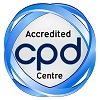
George Moll
University of Mississippi Medical Center, USA
Title: ADHD THERAPY IMPACT – Upon Community Health from a Pediatric Endocrine Practice Perspective
Biography
Biography: George Moll
Abstract
A primary goal of Pediatricians and especially Pediatric Endocrinologists is to support healthy physical growth and mental development of children. The National Institute of Mental Health reports one in five (21%) children have diagnosable mental, emotional or behavioral disorders with Attention Deficit/hyperactivity (ADHD) most prevalent. A 2010 survey finds five million US children 3-17 years of age diagnosed ADHD (8%). With appropriate treatment, children with ADHD can improve short term learning that raises concerns for non-prescribed use such as during college finals and controversy regarding ADHD therapy addiction and substance abuse epidemic. We identify 225 of our 5-10 y/o patients (~8%) diagnosed and treated outside our practice for ADHD and review their progress and the ADHD literature for influence upon response to Pediatric Endocrine therapy for autoimmune thyroiditis (56 of 225), hyperthyroidism (3), diabetes mellitus type 1 (9), congenital adrenal hyperplasia (2), and the majority for various physical growth disorders (180). We present two case reports where ADHD consideration delayed endocrine diagnoses, but we note ADHD therapy to minimally interfere with thyroid, diabetes mellitus or adrenal therapy though individual compliance can be adversely affected. We note short term ADHD therapy physical growth delay consistent with literature assessment awaiting at least 6-year anticipated “catch-up” growth. We encourage ADHD children to attend to monitoring for appropriate ADHD therapy adjustments with their prescribing physicians. Our observations support particular attention to 4-6 month interval growth assessments for pubertal children, especially those on ADHD therapy, to consider early growth therapy to optimize attainment of individual adult height potential.

